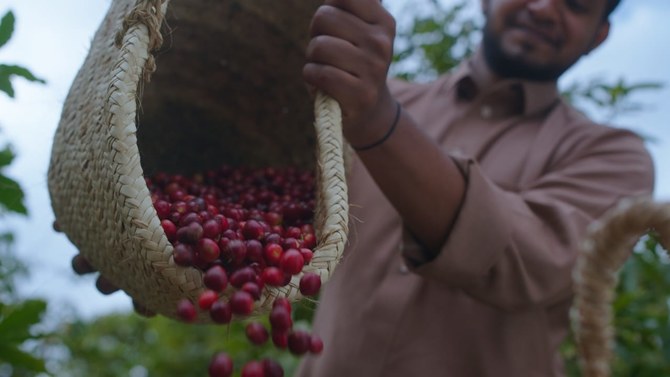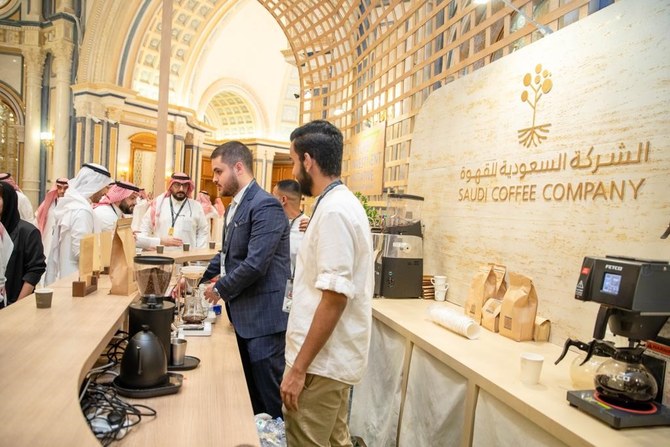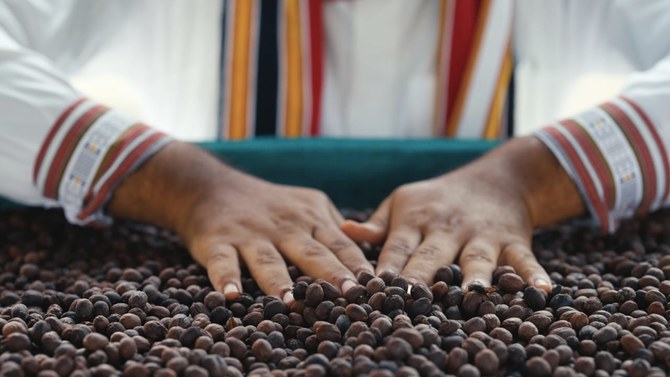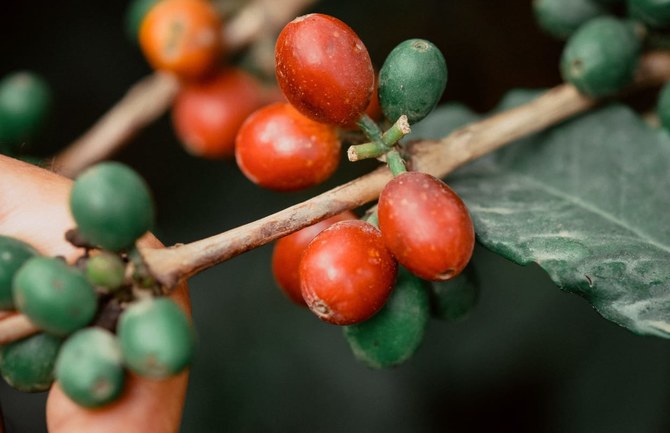JAZAN: If coffee has long been a significant element of Arabic life, with traditional pots kept constantly hot while serving small cups at social gatherings, then Saudi Arabia is upping the stakes and taking coffee culture to the next level.
The country produces one of the world’s finest coffees, known as Khawlani, long recognized as the very best of the Arabica variety. It boasts low acidity, a complex tone and is slightly sweeter than regular coffee.
Reflecting Saudi Arabia’s strong sense of heritage and hospitality, the bean is named after the ancient Khawlan tribe, who have resided in the mountainous regions of Jazan and have been cultivating the bean for the past 500 years.
There are currently more than 2,500 Khawlani coffee plantations with a total of approximately 400,000 trees – although current production is mostly consumed locally.

The people of the Khawlan Mountains in Jazan region were known for wearing a traditional costume known as "Akkawa"- a headband made of flowers- which combined the authentic dress with the prestigious Saudi coffee.
They also used a variety of tools to make coffee, such as “AlMihmas” which is a traditional pot used for roasting coffee, and the cooler which is used after the roasting process.
For grinding the beans, Khawlani people used niger and pestle to grind, and to serve coffee they used “Dallah” -a serving pot- and “Finjan” which a small coffee cup.
Sustainable investment
Saudi Arabia’s specialty coffee will soon be reaching a wider audience, however, following last year’s launch of the PIF-owned Saudi Coffee Company (SCC), which is investing in every stage of coffee production, from cultivation to cup.

As part of Vision 2030’s aim to diversify the economy, with a focus on sustainability, PIF launched SCC to localize coffee-related industries and enrich their contribution to Saudi Arabia’s domestic product through sustainable agriculture development efforts in the Jazan region.
Ultimately, with an investment of approximately SAR 1.2 billion over the next 10 years, SCC’s goal is to increase Saudi coffee output from 300 to 2,500 tons per year by creating jobs at every stage of the value chain.
Taking a sustainable approach throughout all stages of production – as well as distribution and marketing, SCC is enhancing the technology used in the production of coffee and upskilling local farmers.
To further support the farmers, SCC is launching an academy to train and qualify Saudi talents, and provide them with all the knowledge they need by helping them establish their own businesses and plantations in Jazan. SCC provides support to many Saudi farmers across the Jazan region. For instance, the company helps farmers with implementing new methods of cultivation and technologies in their own farms.
Additionally, the company aims to raise public awareness, locally and internationally, of the heritage and culture of Saudi Arabia’s coffee – including the types of coffee and their origins, the taste of each variety, and preparation methods.
With an estimated 73,000 tons of coffee currently imported to the Saudi market, SCC aims to boost local production and the private sector, partly through partnerships with small and medium-sized companies that are looking for opportunities for growth and expansion. This will create thousands of job opportunities for young people in the local coffee sector, and also support efforts to export Jazan coffee worldwide.
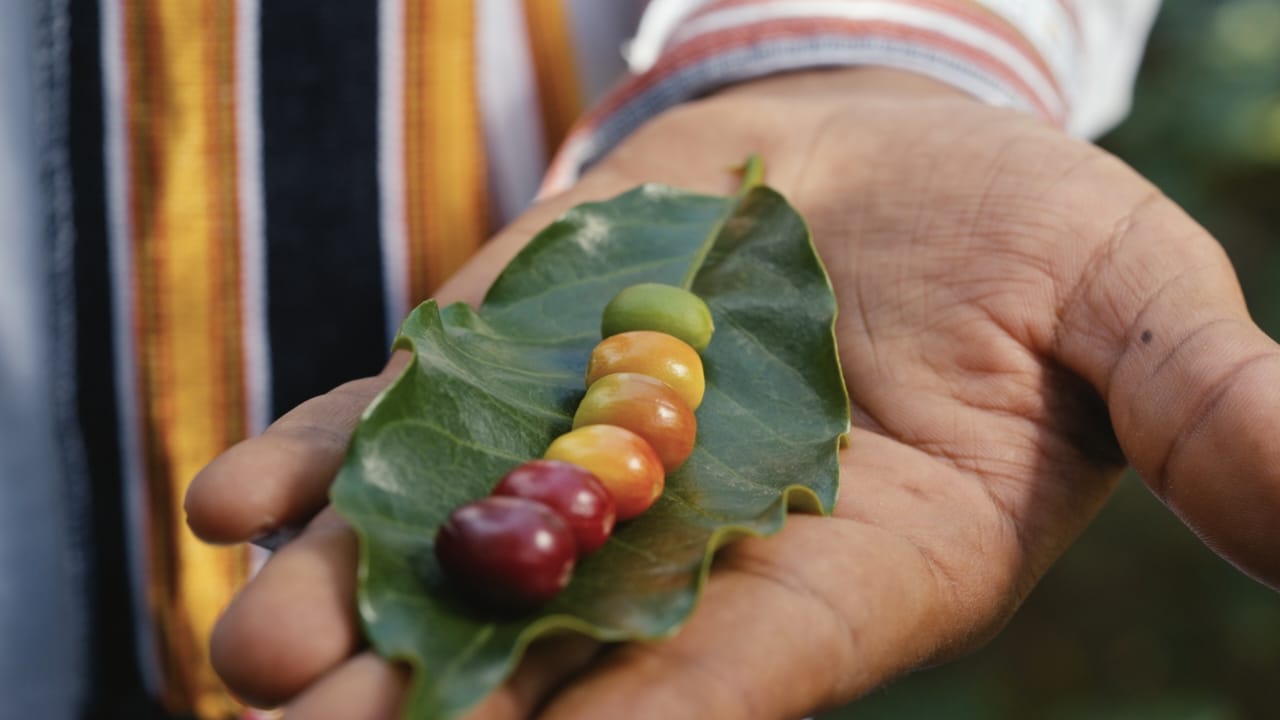
Connecting cultures
A variety of coffee cultivation and preparation methods is seen in different parts of Saudi Arabia. For instance, in the Najd region, coffee tends to be brown in color, while further south it tends to be lighter with a yellowish tone.
The ingredients for preparing coffee also vary, although all include the main ingredients of ground Saudi coffee beans, cardamom and saffron.
With coffee’s power to connect people and cultures, as well as support economies, SCC’s support of Saudi Arabia’s coffee sector will not only provide a path to a more sustainable industry locally, but is also set to seduce the rest of the world with its specialty coffee.


